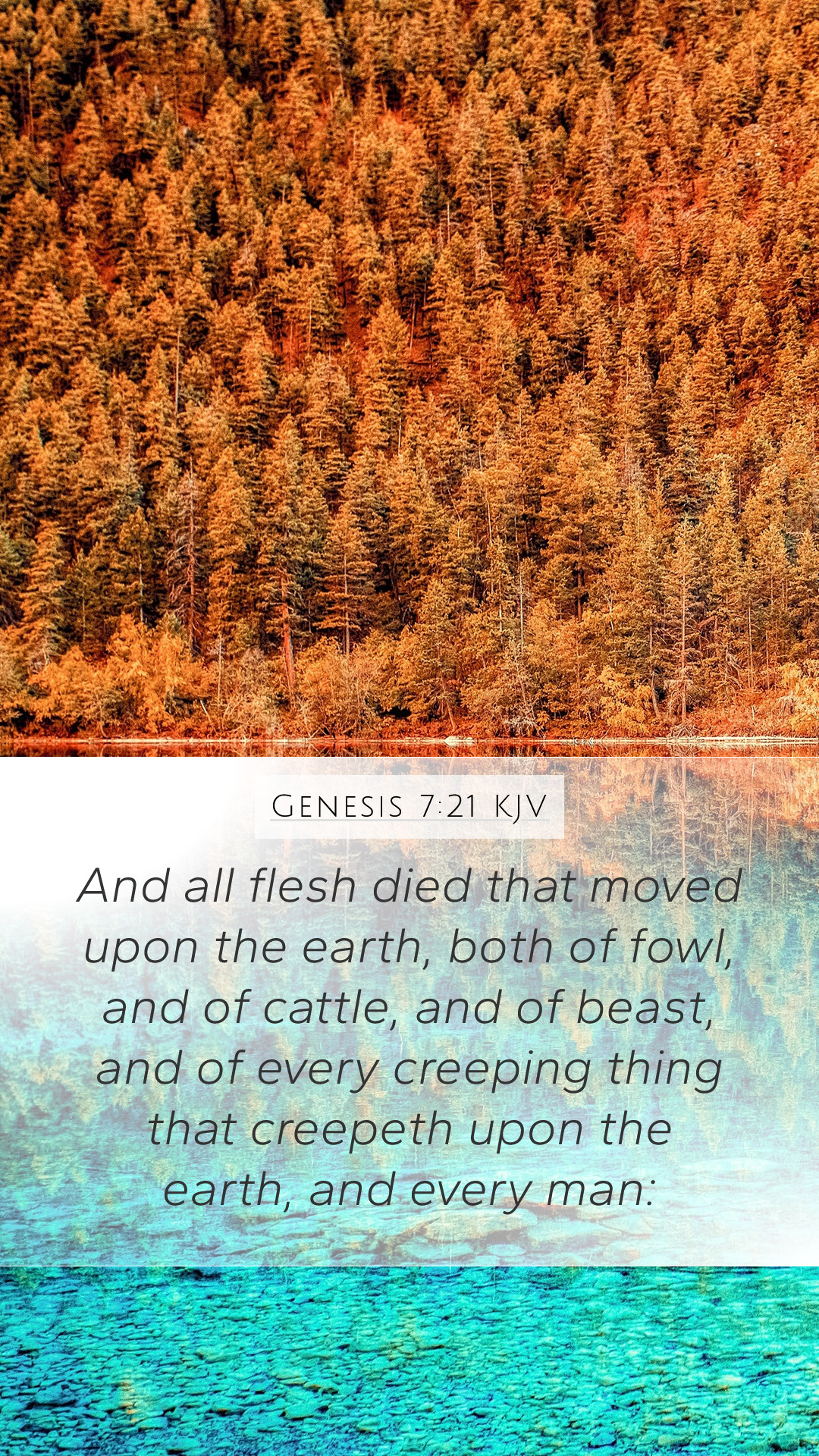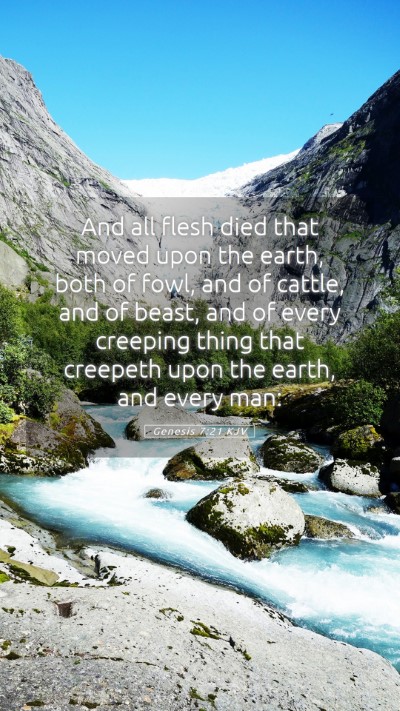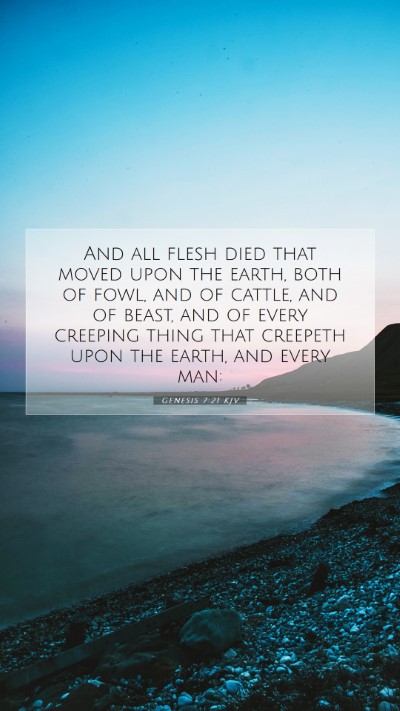Genesis 7:21 - Bible Verse Meaning and Interpretation
Genesis 7:21 states: "And all flesh died that moved upon the earth, both of fowl, and of cattle, and of beast, and of every creeping thing that creepeth upon the earth, and every man." This verse describes the consequence of the Flood, as the judgment of God brought an end to all living creatures that were not on the ark.
This passage serves as a crucial moment in the narrative of Noah and the Flood, providing significant insights into the nature of God's judgment and the severity of sin. Various public domain commentaries present an array of interpretations and reflections on this text.
1. Matthew Henry’s Commentary
Matthew Henry emphasizes the totality of the judgment executed by God. He notes the phrase "all flesh died" underlines the completeness of the destruction. The writer mentions that God's laws are immutable and that His judgments stem from His righteousness. This showcases the seriousness of sin and the necessity of divine intervention.
2. Albert Barnes’ Commentary
Albert Barnes focuses on the implications of the phrase "moved upon the earth." He explains that God’s arbitrary will caused the death of all creatures, affirming His sovereignty over all creation. Barnes also discusses how this verse reflects the extent of human wickedness, as the flood was a response to the pervasive evil of humanity at that time.
3. Adam Clarke’s Commentary
Adam Clarke provides further historical context, elaborating on the types of creatures mentioned in the verse. He distinguishes between the various categories of living beings and emphasizes that this event was not just a local catastrophe but a global one destined to reshape the earth and its inhabitants. Clarke also suggests that this verse represents a turning point in God’s relationship with humanity.
4. Key Themes and Interpretations
- Divine Judgment: The verse highlights the concept of God's judgment on sin. The destruction serves as a sobering reminder of the consequences of human transgression.
- God's Sovereignty: The extent of the Flood illustrates God’s ultimate authority and control over creation, reassuring believers of His power.
- Historical Context: Understanding the world before the Flood can help readers grasp Josephus’ and other historical narratives and the significance of this event in the timeline of biblical history.
- Representation of Evil: The verse signifies the culmination of God's tolerance and the dire state of human morality at that time.
- Foreshadowing Renewal: The death of all flesh also indicates a new beginning is imminent after the Flood, setting the stage for God's covenant with Noah.
5. Application of Genesis 7:21
For modern readers, Genesis 7:21 invites reflection on personal accountability and the significance of living in accordance with God’s directives. It evokes questions about moral integrity in contemporary times and encourages believers to pursue righteousness actively.
6. Bible Cross References
- Genesis 6:5-7: Details of the wickedness of humankind before the Flood.
- Genesis 7:22: Reinforces that everything with the breath of life perished.
- 2 Peter 2:5: Discusses Noah as a preacher of righteousness and the judgment that befell the ungodly.
Understanding Genesis 7:21 through these commentaries provides a comprehensive analysis of its meaning, aiding in Bible study and interpretation. It constitutes an essential piece of biblical exegesis for those engaged in understanding Scripture thoroughly, especially in Bible study groups or online Bible study platforms.
Conclusion
In conclusion, Genesis 7:21 encapsulates profound theological themes regarding judgment, sovereignty, and the consequences of sin. It serves as a stark reminder of the importance of adhering to God's will, inviting a deeper understanding of Scripture and its application to our lives.


